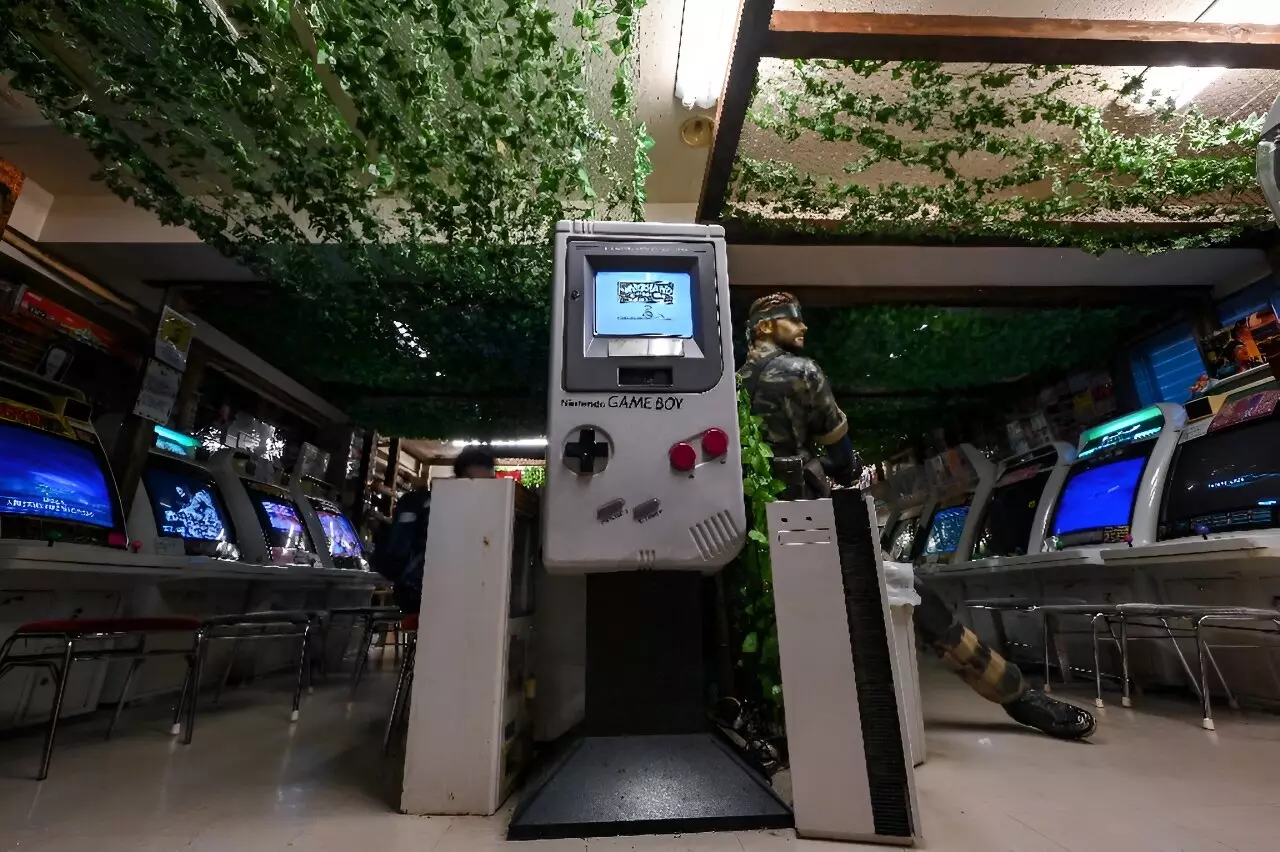The nostalgic pull of retro gaming has captivated a new generation of players and collectors alike, sparking unprecedented demand for vintage consoles and games. As exemplified by David Madrigal, an enthusiastic tourist from the United States, the excitement found in Tokyo’s bustling Akihabara district reveals the insatiable appetite for gaming artifacts from the past. Madrigal’s experience highlights just how powerful the blend of personal nostalgia and cultural exploration can be, as he describes his joy in finding a “vintage” console that would typically cost him three times as much back in the U.S. The transformation of gaming into a cultural artifact is creating an environment where enthusiasts can indulge in their passion while also benefiting from the unique market conditions existing in Japan.
Super Potato, the iconic thrift store catering primarily to retro gaming fans, serves as a testament to the evolving gaming landscape. With its three-story treasure trove filled with vintage cartridges and consoles, it embodies the tangible connection between the past and present for many collectors. Retro gaming has become not just a hobby but also a cultural phenomenon, attracting approximately 70 to 80 percent of foreign tourists who flock to Japan to rediscover their childhoods. The store’s manager notes that the variety and exclusivity of console designs, especially those marketed solely within the Japanese market, further inflame the desire to own a piece of that history. For avid gamers, the thrill of purchasing a relic that represents a bygone era serves to kindle deep-rooted memories and aspirations.
Historically, retro video games were largely disregarded and sold at minimal prices until the period leading up to the late 1990s. Esteemed video game historian Hiroyuki Maeda points out that a transition in public perception transformed gaming artifacts from forgotten relics into valuable collectibles. The explosion of interest in vintage console designs and game titles demonstrates an evolving landscape characterized by market forces and passionate collectors who can now command astronomical prices for rare items. One recent notable transaction includes an untouched copy of the 1985 game “Super Mario Bros.” selling for an astonishing $2 million in 2021.
As demand escalates, it encourages store owners and collectors to rethink the value tied to older consoles and games. Unlike decades ago when they were tucked away in dusty corners of shops, these items have now gained prominence, evolving from the trivial to the treasured. This new reality captivates both veteran gamers and curious newcomers eager to embrace the nostalgia of early gaming culture.
Proudro, a renowned “super collector” residing north of Tokyo, provides yet another glimpse into the world of retro gaming. His collection boasts an extensive array of vintage games, consoles, and fully functional arcade machines. Interestingly, he admits he doesn’t play games but revels in the atmosphere that they create. Collecting for him is less about actively engaging with the games than it is about reliving cherished childhood memories and the joy of discovery.
His journey illustrates the challenges faced by collectors today in comparison to yesteryear. Initially, he found opportunities in small vintage shops and toy stores that often had old stock available at a fraction of current prices. However, the rise of the internet has drastically changed the landscape, making it difficult to find affordable treasures. In contrast to past strategies that relied on bartering, collectors now face fierce competition, underscoring an age of digital commerce that has transformed how vintage items are bought and sold.
Proudro’s passion extends beyond mere acquisition. He founded an association for retro gaming enthusiasts, motivated by a desire to share this cultural phenomenon. Yet, he expresses concerns about the fate of Japanese gaming heritage. Echoing thoughts shared by many in his circle, he believes that Japanese products should value their roots and remain celebrated locally. For him, it draws parallels to historical practices where valuable cultural items were exported and later rediscovered by their country of origin.
As the retro gaming movement thrives, it challenges Japan to reassess its relationship with its own gaming history and treasures. The global interest in retro gaming reinforces the need for a deeper appreciation of its cultural significance. By fostering a community that champions both enthusiasts and collectors, the potential exists for renewed interest in preserving the legacy of the gaming industry while also recognizing its intrinsic value for future generations.
While the phenomenon of retro gaming seems to predominantly celebrate nostalgia and the thrill of acquisition, it deepens our understanding of cultural heritage in an increasingly globalized world. The interplay of personal history, collective memory, and market dynamics defines the retro gaming phenomenon, proving that even in an age dominated by advanced technology, the passion for the past continues to resonate profoundly.

